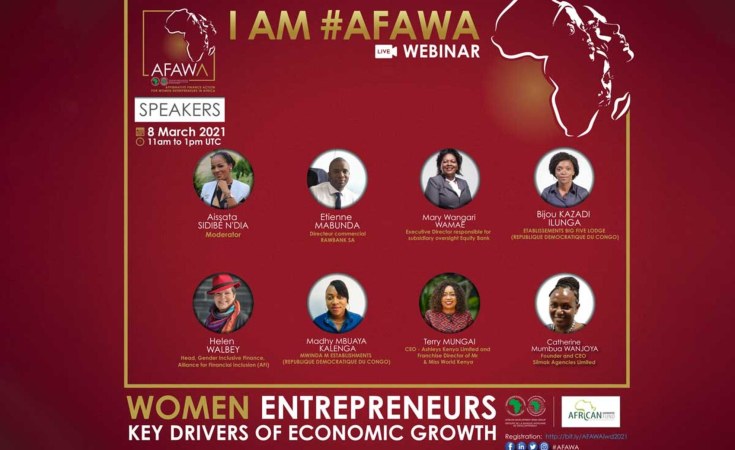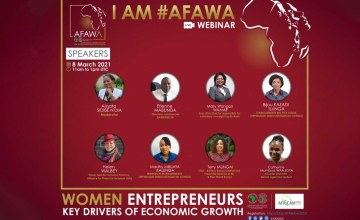The African Development Bank has approved two grants for research that will increase African women's access to a range of digital financial services including loans and micro-insurance.
The grants, for $1 million and $300,000 respectively, will be disbursed through the Africa Digital Financial Inclusion Facility, a blended finance vehicle supported by the Bank, to two financial technology firms, Pula Advisors Kenya Ltd., and M-KOPA Kenya Ltd.
Pula Advisors will use the $1 million for research of social, cultural and economic factors that impact women farmers' access to micro-insurance in Kenya, Nigeria and Zambia. Research findings will inform the design and implementation of gender-centric insurance products. The project will be undertaken over a 3-year time frame.
"This grant funding will be used to leverage technology to develop innovative and responsive loan and insurance products that can spur productivity and inclusion, especially for our women smallholder farmers and traders." said Sheila Okiro, the Bank's Coordinator for ADFI.
The three-year project will have three phases: product development; piloting; and scaling; the outcomes are expected to benefit 360,000 farmers, 50% of them women, as well as boost farm yields by up to 30%. This will also raise incomes and enhance household and national food security.
M-KOPA will use the $300,000 grant funding for research involving 250 women and 250 men in Kenya's Kisumu, Eldoret and Machakos counties. The company will assess the barriers to and opportunities for women's access to digital financial services and financial literacy programmes via smartphone, and use the research insights to design a financial services app that is relevant to small-scale women traders.
The project, approved by the Bank on 9 February, 2021, will benefit women with no or limited access to financial services that run small informal businesses. Once developed, the mobile app will be used to pilot small loans to the women traders.
Both projects align with ADFI's digital products and innovation and capacity building intervention pillars as well as its cross-cutting focus on gender inclusion, a thematic running across all its interventions.
The PULA grant approval meets African Development Bank strategic goals, including the Ten-Year Strategy, two High-5 priority areas--feed Africa and improve the quality of life for Africans--- and the financial inclusion strategies of Kenya, Nigeria and Zambia.
The M-KOPA project is aligned with the Bank's Affirmative Finance Action for Women in Africa (AFAWA) program that seeks to increase access to finance for women.
ADFI is a pan-African initiative designed to accelerate digital financial inclusion throughout Africa, with the goal of ensuring that 332 million more Africans, 60% of them women, gain access to the formal economy. The Facility was formally launched in June 2019 at the Bank's Annual Meetings in Malabo, Equatorial Guinea. Current ADFI partners are the French Development Agency (AFD); the French Treasury's Ministry of Economy and Finance; The Government of Luxembourg's Ministry of Finance; the Bill and Melinda Gates Foundation; and the African Development Bank, which also hosts the fund.
Contact:
Olufemi Terry | Communication and External Relations Department | African Development Bank | email: o.terry@afdb.org



